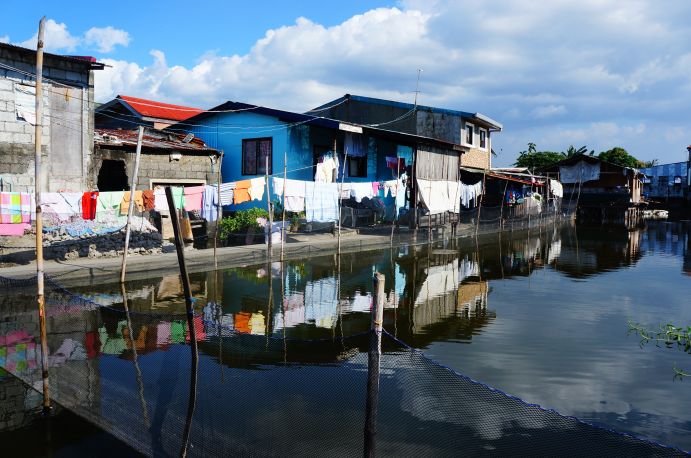LIRLAP: Linking disaster risk governance and land use planning. The case of informal settlements in hazard prone areas in the Philippines
The LIRLAP project focused on climate-resilient upgrading and resettlement measures in informal settlements in the Philippines. In this way, the project was able to improve living conditions through locally sustainable strategies developed in collaboration with residents.

Rapid and often poorly managed, urbanisation is contributing to an increase in disaster risks worldwide. The phenomenon of informal settlements – residential areas that have sprung up without official authorisation or planning – in flood-prone areas poses a particular challenge because people living in poverty are often the most severely affected by natural disasters.
While cities often focus on global competition and the efficiency of the urban economy, the highly marginalized urban poor are often neglected in national planning. This is the case in the Philippines and other Southeast Asian countries. It is therefore essential to introduce and further develop climate risk management in cities and risk-based land use planning in order to reduce the socio-economic vulnerability of residents and improve their ability to adapt to the challenges of climate change.
New approaches to this were developed as part of the LIRLAP research project with the aim of making informal settlements in Metro Manila and elsewhere climate-resilient and enabling suitable resettlement where necessary. The goal was to improve the living conditions of residents while also making cities more resilient to the effects of climate change.
The LIRLAP project achieved the following results in the research and development phase (2021–2025):
- Concrete planning approaches were developed in urban development for the resettlement and upgrading of informal settlements, supplemented by knowledge transfer to and from Thailand and Vietnam. These were tested in two pilot studies with upgrade and resettlement guidelines in Metro Manila. The upgrade and resettlement guidelines were successfully integrated into urban risk management and can also be applied to other upgrade locations.
- The risk trend model developed by LIRLAP was transferred to partner cities in Thailand and Vietnam, and a cross-country analysis was prepared.
- Climate-resilient upgrading and resettlement approaches were developed in pilot studies together with residents to improve their livelihoods. In the Kasiglahan resettlement case study, a model house project for resilient flood management was designed in cooperation with the local NGO Base Bahay in 2025. Implementation is scheduled to begin shortly.
- A total of six training programs on disaster risk management were conducted for local practitioners, in which knowledge and solutions were generated, transferred, and disseminated. The training modules are available for further use by local partners.
A joint dual doctoral programme has also been launched between TU Dortmund University and the School of Urban and Regional Planning at the University of the Philippines.
All results are transferable to partner countries and countries with similar development contexts. The three LIRLAP products were presented during the final conference of the research and development phase in March 2025: Resilient Upgrading Guidelines, Resilient Retreat Guidelines and the Mainstreaming Roadmap. These were officially handed over to the ministries, local authorities and neighbourhood organisations in Quezon City (Metro Manila) in a ceremony and will be used to ensure the sustainable application of the research results.
Project lead:
Prof. Dr. Stefan Greiving
Institute of Spatial Planning, TU Dortmund University
August-Schmidt-Straße 10
Phone: +49 231 755 2213
E-Mail: stefan.greiving@tu-dortmund.de
Project partners:
- School of Urban and Regional Planning (SURP), University of the Philippines
- Institute of Spacial and Regional Planning (IREUS), University of Stuttgart
- Unit on Human Environment Relations (HER), Ludwig Maximilian University of Munich
- Urban Futures & Policy Research Unit (UFP), Thammasat University, Thailand
- Faculty of Natural Resources and Environment, Vietnam National University of Agriculture
- KaiserIngenieure, Dortmund
Last updated on



